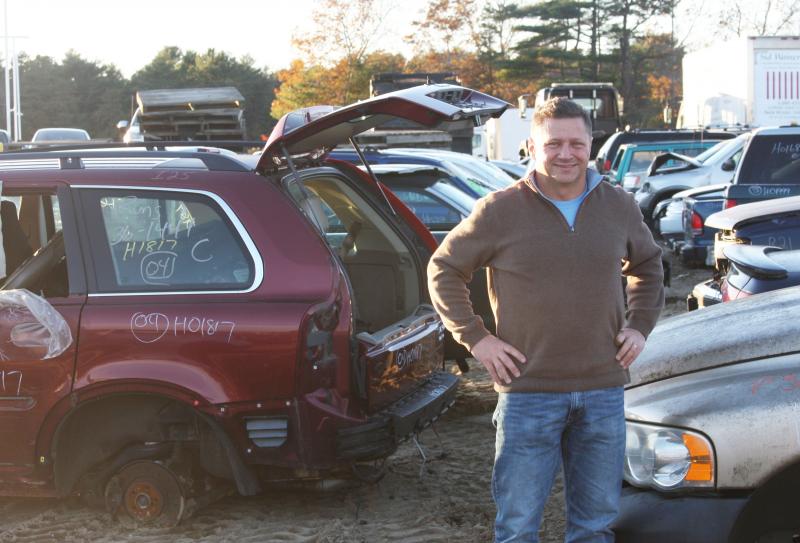Study spearheaded by Robertson's Auto Salvage owner finds salvage yards reduce CO2
Results of a new study spearheaded by the co-owner of Robertson’s Auto Salvage in Wareham revealed there’s more to salvage yards than rows upon rows of junked cars. In Massachusetts, the industry prevents 2.2 million tons of the greenhouse gas carbon dioxide from entering the atmosphere through recycling.
That equates to the annual emissions from 388,516 passenger cars, according to the study. Scott Robertson says the information may change attitudes about salvage yards.
“This industry has always had a negative public perception – the dirty junkyard the polluted junk yard,” said Robertson. “I’ve always known that we’re good guys and good for the environment.”
The study is titled “Assessing the Environmental Impact of Automotive Recyclers of Massachusetts.” Sponsored by the Automotive Recyclers of Massachusetts, it was independently conducted by four Worcester Polytechnic seniors in order to complete their degrees in mechanical engineering.
“What the automotive recyclers are doing is saving materials, saving energy and impacting the environment in a positive way, thus adding value to the economy of the state” said Professor Brajendra Mishra, PhD, director of the Metal Processing Institute at WPI and advisor for the study.
In business since 1970, Robertson’s Auto Salvage process approximately 3,000 cars annually.
Robertson’s has been a member of the Automotive Recyclers of Massachusetts for the past 40 years and Robertson has been on the group’s board of directors for the past 10.
He had the idea for the study after seeing an article on carbon offsetting. The term refers to reducing carbon emissions in one area in order to compensate for emissions elsewhere.
Robertson had a hunch that by reusing parts from salvaged cars the industry was making a big impact on emissions.
“We’re better than carbon neutral,” said Robertson. “We’re carbon negative as an industry.”
Through site visits and a survey of salvage yards, the students examined operations at auto recycling facilities across Massachusetts and documented their processes for reclaiming auto parts, recycling metals and capturing fluids like oil, gasoline and antifreeze to process properly. The study found an estimated 165,000 vehicles are recycled in a typical year. The team then calculated the energy saved by re-using auto parts from those vehicles, like engines and transmissions, versus manufacturing new parts. They also calculated the energy saved by recycling the steel and aluminum left in the vehicles, rather than mining ores and refining new metals.
Robertson said the information will become part of a new marketing campaign touting the industry.
“Not only can you buy a used car part for half the money of new at a salvage yard,” said Robertson. “But you’re actually helping the environment.”
To read the study, click here.











